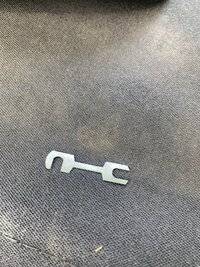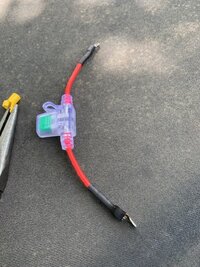Those stock fuse boxes do not age well so many have opted to replace with blade fuses. Unfortunately blade fuses do not always provide a snappy response to a short circuit as was the case with those original glass fuses. Generic blade fuses may be responsible for melted wires due to excessive response time. The following video demonstrates this issue:
From the specification tables shown in this video you can see that a blade fuse melts in about 0.3 seconds when subjected to twice it's current rating. However, if subjected to values just over their current rating they can take many minutes to blow. Blade fuses are very slow blow until you get to about 2x current rating.
For a more detailed analysis see the following:
The issue with Generic/Cheap blade fuses is their resistance is too low - typically about 1 milliohm i.e. 1/1000th of an Ohm. Blade fuses made to the correct specification have resistances in the region of 2 - 7 milliohm depending on the fuse's current rating. It is these very small differences in resistance that lead to fuse heating and melting when the current rating is exceeded. Consequently a cheap generic fuse may take many minutes to blow while your wiring heats up and the insulation slowly melts.
I have dumped all my blade fuse today and ordered in OEM quality fuses (Littelfuse). Essentially my Ebay bargains were just pressed metal that look like the real thing, what about yours...
From the specification tables shown in this video you can see that a blade fuse melts in about 0.3 seconds when subjected to twice it's current rating. However, if subjected to values just over their current rating they can take many minutes to blow. Blade fuses are very slow blow until you get to about 2x current rating.
For a more detailed analysis see the following:
The issue with Generic/Cheap blade fuses is their resistance is too low - typically about 1 milliohm i.e. 1/1000th of an Ohm. Blade fuses made to the correct specification have resistances in the region of 2 - 7 milliohm depending on the fuse's current rating. It is these very small differences in resistance that lead to fuse heating and melting when the current rating is exceeded. Consequently a cheap generic fuse may take many minutes to blow while your wiring heats up and the insulation slowly melts.
I have dumped all my blade fuse today and ordered in OEM quality fuses (Littelfuse). Essentially my Ebay bargains were just pressed metal that look like the real thing, what about yours...

Last edited:



 As we all know, fuses only blow at night when there is no lighting nearby. For this same reason I bought the fuse holder with the built in LEDs to show which fuse blew.
As we all know, fuses only blow at night when there is no lighting nearby. For this same reason I bought the fuse holder with the built in LEDs to show which fuse blew.